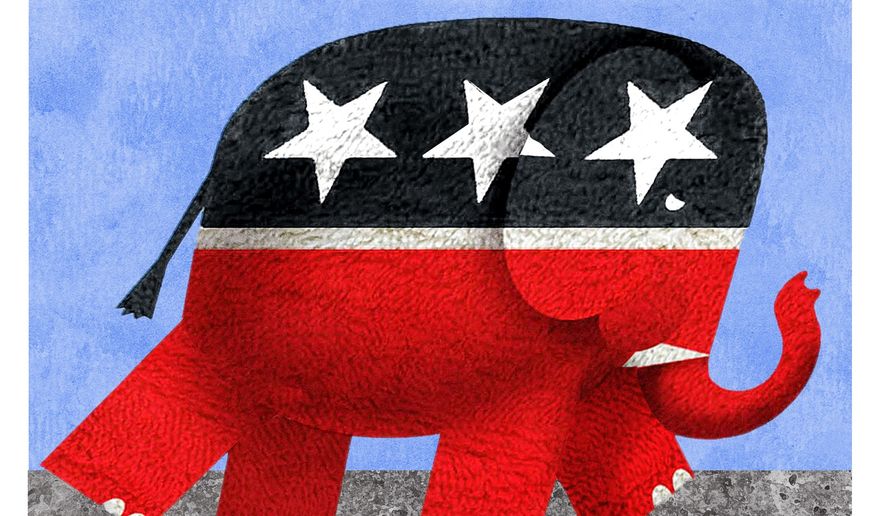OPINION:
The attention surrounding the midterm elections always centers on control of Congress because historically, with few exceptions, the political party of the sitting president loses seats in both the Senate and House of Representatives. The driving force for media attention, pundits and pollsters is focused on the federal elections, especially the demographics of the incoming members of Congress.
As the results came in late Tuesday night and into next morning, it was clear that the so-called red wave was not going to yield the large results that many had predicted, but Republicans would take back control of the House of Representatives and retire Nancy Pelosi from being speaker of the House.
What also became clear was, despite a tremendous candidate recruitment effort and hundreds of Black and Hispanic candidates earning the trust of their constituents to get on the ballot, many of them lost in close elections for Congress.
There were 31 Black Republicans on the ballot for federal office with five winning outright: incumbents, Sen. Tim Scott and Reps. Byron Donalds and Burgess Owens, along with Reps.-elect John James and Wesley Hunt, both West Point graduates. Herschel Walker remains in a very important December runoff for U.S. Senate in Georgia.
While the potential for six Black Republicans in the 118th Congress would be historic — you would have to go back to the late 1800s to see that many serving at once, and never two in the Senate — there was an overlooked bright spot for Black Republicans in the midterms on the state and local level.
There were at least 56 Black Republicans running for state and local office this year, with nearly half of them winning their seats. Next year. there will be well over 40 Black elected Republicans at all levels, from senator to lieutenant governor to county council member.
In fact, historically Black Republicans have excelled at a greater number at getting elected or appointed statewide. More Black Republicans (15) have been state attorney general than Democrats, and we currently have more Black Republicans serving today as lieutenant Governors than Democrats do.
Florida made history in several ways this year, one of which was by electing four Black Republicans to the State House.
There has only been one Black Republican woman to serve in Congress, former U.S. Rep. Mia Love, and we came very close to having the second Black Republican women in Congress with Jennifer-Ruth Green. However, on the state and local level, Black Republican women serving in the past and present is very common.
Virginia Lt. Gov. Winsome Sears will remain the highest-ranking Black woman in the GOP — and the midterm elections have two Black women winning, including Florida state Rep.-elect Kiyan Michael. On the local level, Dorchester County, South Carolina, Councilwoman Harriet Holman won reelection as a Republican after leaving the Democratic Party this year.
State and local elected officials often play an even greater role in the everyday lives of Americans because they have a more direct and immediate impact on the lives of their constituents. While these positions do not normally garner the same attention and notoriety as federal positions, they are just as important, and Republicans should continue to recruit candidates to run at the state and local level.
It was great to see the Republican State Leadership Committee (RSLC) start a program directly aimed at recruiting, training and supporting more diverse candidates for state and local office through their Right Leaders Network. Black Republicans like Sen. Tim Scott of South Carolina and North Carolina Lt. Gov. Mark Robinson signed on to serve in leadership roles because they understand the importance of electing great leaders on the state and local level.
Remember, Tim Scott got his start in politics on the Charleston County Council, then the South Carolina House of Representatives before being elected to the U.S. House of Representatives, and eventually the U.S. Senate.
Organizations like Run GenZ, co-founded by West Virginia state Rep. Caleb Hanna, are on the front lines trying to identify, mentor and support Generation Z Republicans to run for office on the state and local level to great success. They continue to promote and highlight Black leaders like Bowie, Maryland, City Councilwoman Roxy Ndebumadu, Albany, Georgia, City Commissioner Jalen Johnson and Willard, Missouri, Mayor Samuel Snider.
The future of the GOP is bright when we build a bench from the state and local level all the way up to the federal level. The midterm elections did see the wave of Black Republican leadership continue to grow on the state and local level with courageous Americans who were elected to serve, and will do so with distinction. Leadership always doesn’t always come from Washington, and all these Black Republicans elected on the state and local level prove it.
• Paris Dennard is a communications and political strategist and consultant who has worked at the highest levels of government and Republican politics.




Please read our comment policy before commenting.